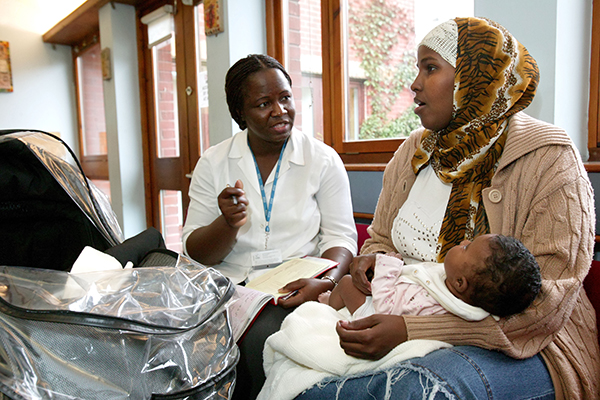CEG launches version 2 of its childhood immunisation tool and urges GPs in North East London to use it to ensure children are fully protected against polio
The software tool ‘APL-Imms’ was developed by Queen Mary’s Clinical Effectiveness Group (CEG) to help GP practices immunise more children against preventable illness. The timing of the updated tool will help GPs to protect more children against polio, which has recently been detected in north east London sewage.

Polio is a viral infection that can cause serious illness, such as paralysis, in people who are not fully vaccinated. The UK was declared polio-free in 2003 because of high immunisation levels. But following the discovery of virus samples, the NHS has asked for increased vigilance from primary care to ensure all children in the region are fully immunised and protected from any community transmission.
APL-Imms is used within GP practices to make the process of checking a child's immunisation status easier. It draws data from each of the patient health records held at the practice and presents it as a list of children, with coloured flags to indicate who is due or overdue for routine pre-school immunisations. The list can be filtered by immunisation and age, and it displays important information about each child, for example if a previous vaccine has been declined or deemed unsuitable. With one click, a practice can list all their patients under six years old who are not fully protected against a preventable infection, including polio.
The original APL-Imms tool was launched across the North East London Integrated Care System in January 2022 and was adopted by 70% of GP practices within the first four months. The CEG team have been gathering generous feedback from practices since and have now launched version 2, which incorporates several new features suggested by its users. It’s now possible to export a prioritised list of children in a format that can be imported straight into messaging software, making it much easier to contact parents. There is also a new filter to display newly-registered children – this will be particularly useful for checking the polio immunisation status of children moving into the area.
The updated tool is available to all GP practices in North East London who use the EMIS clinical system, at no cost to the practice.
Ana Gutierrez, Senior Primary Care Facilitator and Childhood Immunisations Lead at CEG, says:
“The response from North East London practices has been fantastic, offering not only praise for our original tool but also very useful suggestions for development. We have taken many of these ideas on board and now have a second version that makes navigating the complex childhood immunisation schedule even easier.
“As an ex-practice manager, I know how difficult it is to keep track of which child needs to be called when for their immunisations. APL-Imms Version 2 automates much of this process and will be a valuable asset to practice teams, particularly during this period of heightened vigilance against polio. We are urging North East London practices to adopt the tool if they have not done so already.”
GP practices in North East London should contact their CEG facilitator to obtain the updated tool and to request support.
More information
- APL-Imms forms part of a wider quality improvement programme to improve coverage of childhood immunisations in London. The programme is jointly funded by the London Health Data Strategy partners, which include NHS England (London region), the five London Integrated Care Systems and a number of London’s NHS organisations and universities, and further supported through Health Data Research UK. The programme also builds on CEG’s previous work to improve childhood immunisation rates which was funded by NHS North East London Clinical Commissioning Group’s Digital First programme and Barts Charity REAL Health programme.
- For media information, contact press@qmul.ac.uk